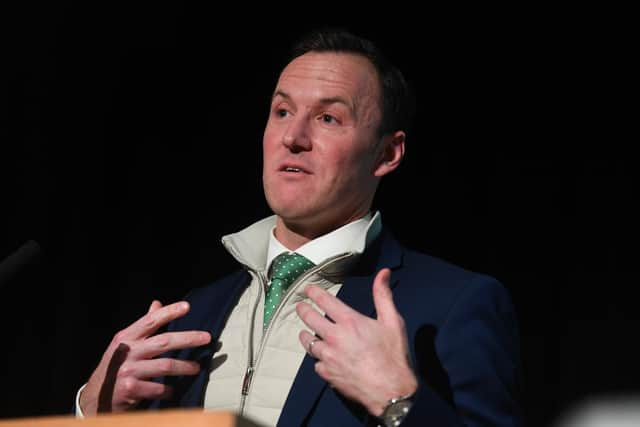Simple steps to making your small business more sustainable - Tom Rumboll
But these challenges shouldn’t be enough to put you off taking steps to tackle the climate emergency. Whilst businesses are still in their growth phase, they can be flexible enough to make fundamental widespread changes, and have the power to develop a culture that considers corporate social responsibility from the very beginning.
In the UK alone, SMEs account for 99 per cent of registered companies, employing 17 million people and creating half the nation’s business-related emissions. That’s a huge opportunity for leaders to drive change.
Advertisement
Hide AdAdvertisement
Hide AdSustainable practices also help businesses realise opportunities that will secure long-term benefits, like more resilient supply chains and more efficient operations.


Not only that, but the cost savings to be made through reduced emissions can have a huge impact on your bottom line. And the best part is that it doesn’t need to be difficult.
The key to getting started is to make a commitment. It doesn’t have to be formal – no need for a public announcement – but it is important to outline your commitment to everybody involved.
For a sustainability strategy to really work, your people need to be on board from the outset. As a global emergency it could feel daunting at first.
Advertisement
Hide AdAdvertisement
Hide AdRelating the issue as one that’s close to your employees’ home and work lives helps engage individuals and the company as a whole, and is critical to driving the rest of your actions forward.
Making this practical and accessible is essential. Commitment will look different for each business, like creating a set of shared values around the issue that speaks to individuals’ personal and professional values.
Once you’ve outlined your commitment, it’s time to measure and benchmark. Start with the emissions directly in your control, your scope one and two emissions. How do you heat your building? How you do light it? How do you travel?
Then measure scope three – those associated with your supply chain. Accounting for all three scopes of emissions will help you understand your full value chain emissions and identify areas to focus on that offer the greatest reduction opportunities.
Advertisement
Hide AdAdvertisement
Hide AdThere are plenty of resources offering advice to help you get to grips with your business emissions: the Department for Environment, Food and Rural Affairs has a small business user guide on how to measure and report your greenhouse gas emissions, and there are free carbon calculator tools online.
Your local Chamber of Commerce can also offer advice and might have training workshops available. With regulations already in place for larger businesses, it won’t be long before the pressure is pushed down to SMEs, so the sooner you take stock of your emissions, the better.
After you’ve benchmarked and you know what your objectives are, split your projects out into categories and workstreams to help make it more manageable. Some of the actions you identify during the planning stage will be quick wins.
Simple changes can have a huge impact. Switching to LED lightbulbs and reusable coffee cups, introducing recycling facilities and making sure equipment is turned off at the end of the day all add up. Remember to measure your progress and share your success with your team to keep them engaged on the journey.
And finally, don’t let perfection get in the way of progress. Every step towards a more sustainable future matters.
Tom Rumboll is SYNETIQ CEO and IAA UK Managing Director